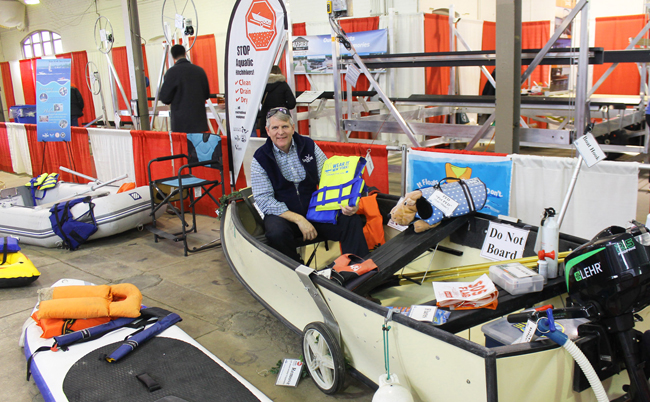
New York Sea Grant Great Lakes Recreation and Tourism Specialist Dave White in the folding boat that is part of the 2018 Discover Clean and Safe Boating Inflate-A-Fleet educational exhibit. Credit: Brian P. Whattam
Ready to Rent a Boat This Summer or Fall? 5 Tips from New York Sea Grant and Boating Industries Association of Upstate New York
Contacts:
Dave White, New York Sea Grant, Recreation and Tourism Specialist, P: 315-312- 3042, E: dgw9@cornell.edu
Barb Caster, Boating Industries Association of Upstate NY, P: 315-447-9286
Kara Lynn Dunn, NYSG Great Lakes Publicist, P: 315.465.7578, E: karalynn@gisco.net
Oswego, NY, May 21, 2018 - Interested in getting out on the water this summer, but not ready to buy a boat of your own?
New York Sea Grant and the Boating Industries Association of Upstate New York offer safety tips and suggest the right questions to ask before renting a boat. You can begin your search for rental opportunities through the Boating Industries Association of Upstate New York, Chambers of Commerce, and local tourism agencies.
1. Match your purpose to the style of boat: Do you want to relax on a pontoon with family and friends, sight-see and cruise port-to-port, fish, tow a water skier, ride the waves on a personal watercraft? Would you prefer a non-motorized vessel: a kayak, canoe, or paddleboard?
2. Who will be onboard? Who will captain the boat? Learn the operating experience, skill or safety certificate level required and any restrictions. What boat operation and safety training does the marina offer before you launch?
3. How many people will be onboard? Does your chosen vessel have all required and recommended safety features? Are properly-sized, US Coast Guard-approved vests provided for everyone onboard and for those will come onboard during the rental? Has anyone taken the Suddenly-in-Command training to help non-boaters operate a boat in an emergency that disables the captain?
4. Call ahead to check the availability of your desired type of non-motorized or motorized vessel for rental. Read the rental agreement carefully: Is insurance provided or required? Is there a security deposit? Is towing of skiers/tubes allowed? Do you have a proper vehicle for towing a boat trailer? Once you have selected a boat for rental, check it closely to note any pre-existing damage, stains, dents, etc. that you do not want to be charged for upon returning the boat.
5. Before you leave the dock: File a float plan: tell someone where you are going and when you expect to return? Check the Great Lakes Observing System Boaters’ Forecast resource for indicators of water currents, depth, wave and wind conditions for your route of travel. Have emergency contact information with you and know how to operate a marine radio.
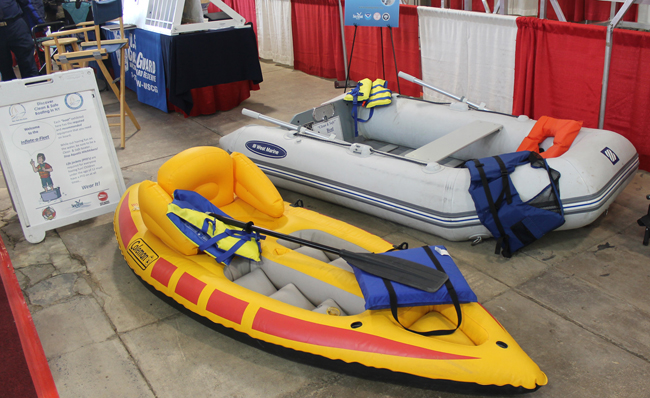
Both motorized and non-motorized vessels can be rented. Credit: Brian P. Whattam.
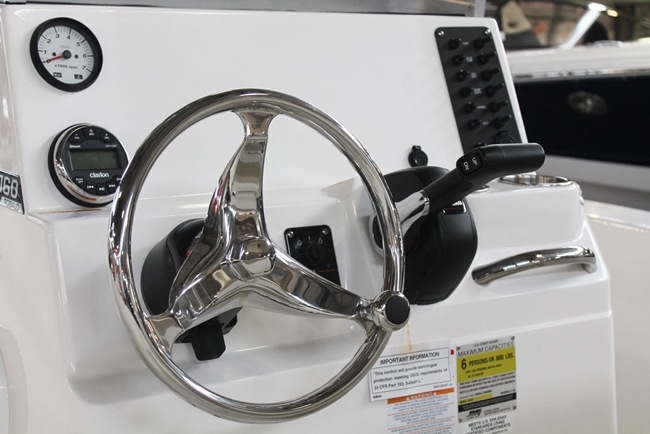
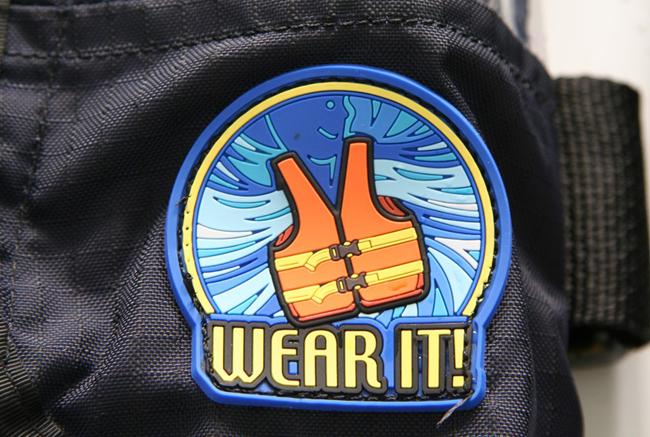
Wear It! Credit: Brian P. Whattam.
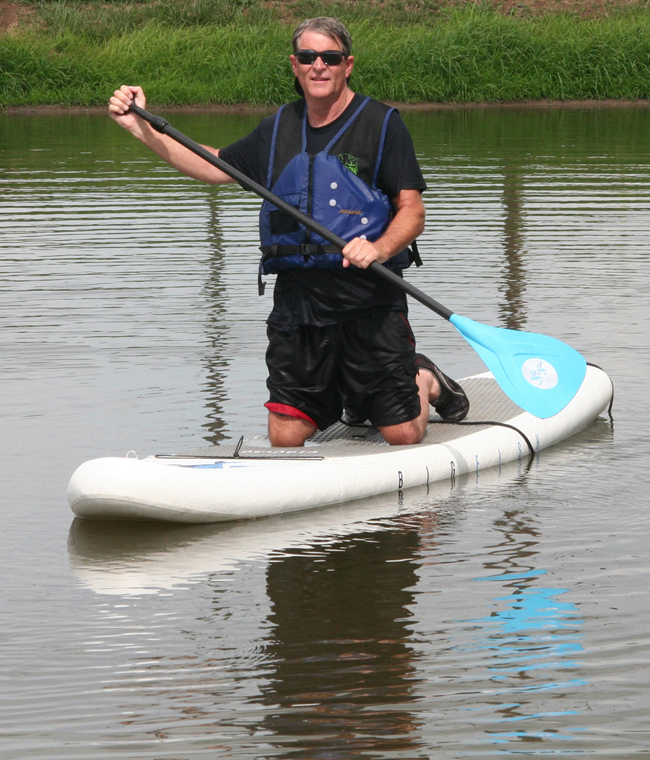
For those renting paddlecraft, reflective decals on each side of each paddle can make you easier to locate in an emergency. Credit: Brian P. Whattam.
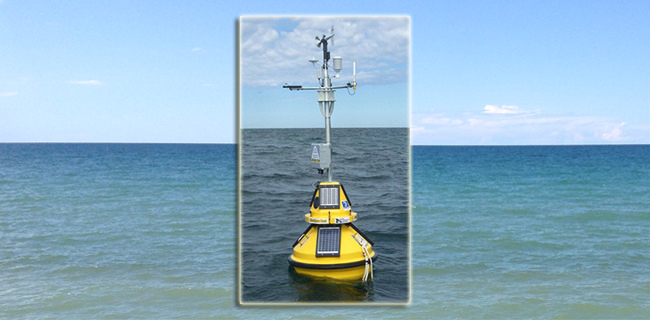
The Great Lakes Observing System of buoys provides indicators of water current, depth, wave and wind conditions on the Great Lakes and St. Lawrence River. See the Boaters’ Forecast at https://boaters.glos.us/#st-lawrence-river. Credit: Michigan Sea Grant.
More Info: New York Sea Grant
New York Sea Grant (NYSG), a cooperative program of Cornell University
and the State University of New York (SUNY), is one of 33 university-based
programs under the National Oceanic and Atmospheric Administration’s
National Sea Grant College Program.
Since 1971, NYSG has represented a statewide network of integrated
research, education and extension services promoting coastal community
economic vitality, environmental sustainability and citizen awareness
and understanding about the State’s marine and Great Lakes resources.
Through NYSG’s efforts, the combined talents of university scientists
and extension specialists help develop and transfer science-based
information to many coastal user groups—businesses and industries,
federal, state and local government decision-makers and agency managers,
educators, the media and the interested public.
The program maintains Great Lakes offices at Cornell University, SUNY
Buffalo, SUNY Oswego and the Wayne County Cooperative Extension office
in Newark. In the State's marine waters, NYSG has offices at Stony Brook
University in Long Island, Brooklyn College and Cornell Cooperative
Extension in NYC and Kingston in the Hudson Valley.
For updates on Sea Grant activities: www.nyseagrant.org has RSS, Facebook, Twitter, and YouTube links. NYSG offers a free e-list sign up via www.nyseagrant.org/nycoastlines for its flagship publication, NY Coastlines/Currents, which is published quarterly. Our program also produces an occasional e-newsletter,"NOAA Sea Grant's Social Media Review," via its blog, www.nyseagrant.org/blog.